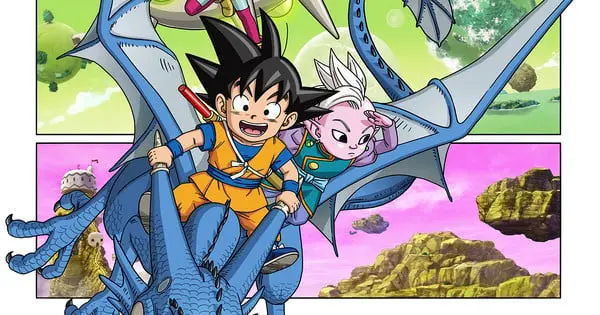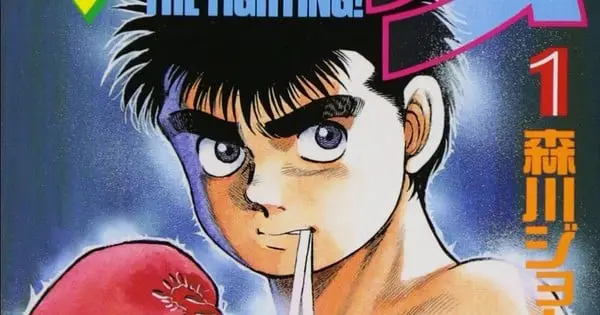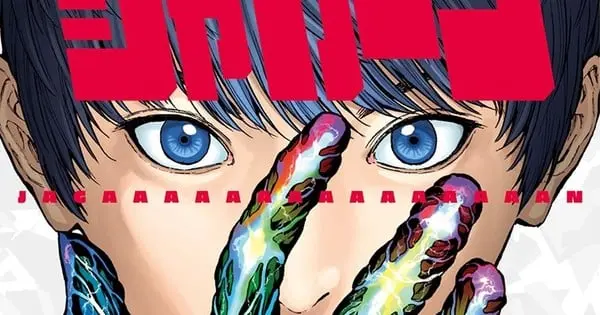The world of manga is ever-evolving. As readers embrace digital platforms, some print publications are transitioning to online spaces. One such magazine is Manga Goraku Special, which published its final issue in May 2025 and is moving its manga series to Goraku Web!, a free manga website. This shift highlights the changes in the manga market and how publishers adapt to meet current needs.
Manga Goraku Special Ends Print Run
Nihonbungeisha’s Manga Goraku Special magazine published its 58th and final issue on May 15, 2025. This announcement came in the 57th issue, signaling the end of an era for the magazine, which began as Weekly Manga Goraku Zōkan in May 2013, a supplement to the Weekly Manga Goraku magazine. In March 2014, it was renamed Manga Goraku Special, replacing Bessatsu Manga Goraku and inheriting many of its serializations.
The magazine initially shifted to a digital format in August 2020, citing “changes in the manga market” and the necessity to “respond to current needs.” This move was a precursor to the complete transition to the web with the launch of Goraku Web! on March 28, 2025. The new website integrates Nihonbungeisha’s previous Web Goraku manga serialization site, creating a centralized online hub for its manga content.
Goraku Web!: The New Digital Home
Goraku Web! aims to provide manga fans with free access to a variety of series. Several manga titles previously serialized in Manga Goraku Special have already moved to the online platform, including:
- Booty Royale: Never Go Down Without a Fight! by Rui Takatō
- Dorei Sensei by Hiro Tomono
- Rinjin X by Tetsu Kusumoto
- Tonight, My Wife will… by Takashi Sano
- Bokusatsu Pink Gaiden: bye buy pink by Kōji Yamamoto
- Saikyō Pashiri by Hankouki (story) and Yasuhito Yamamoto
- Watashi no Kawaii Inu Dakara by Gawo Hiroshima
Additionally, Shūichi Sakabe’s mitsusou manga concluded in the final issue of Manga Goraku Special, with the fourth and final compiled book volume scheduled for release in mid-July.
A Look at Manga Goraku’s History
To understand the significance of this transition, it’s helpful to know the history of Manga Goraku and its related publications:
- Weekly Manga Goraku: This weekly magazine has been published since 1968 by Nihon Bungeisha. It is a seinen manga magazine, targeting a demographic of adult men.
- Bessatsu Manga Goraku: This magazine launched in 1981 as another Manga Goraku magazine after Weekly Manga Goraku. It initially published monthly, then twice a month from late 1985 to early 2009, before reverting to a monthly schedule. It ended in February 2014, with its series transferred to Manga Goraku Special and the online magazine Goraku Egg.
- Manga Goraku Special: Originally Weekly Manga Goraku Zōkan, it became Manga Goraku Special in March 2014, replacing Bessatsu Manga Goraku. It switched to digital-only in late 2020 before ceasing publication in May 2025.
- Web Goraku: This was Nihonbungeisha’s previous online manga serialization site, which has now been integrated into the new Goraku Web! website.
Trends Driving the Digital Shift
The move of Manga Goraku Special to an online platform reflects broader trends in the manga industry. Several factors contribute to this shift:
- Digital Manga Growth: The digital transformation of the manga industry is reshaping how fans consume content. Smartphones, tablets, and e-readers have made digital manga more accessible. Platforms like WEBTOON, Manga Plus, Shonen Jump+, and ComiXology offer vast libraries, simultaneous global releases, and features like panel-by-panel navigation and translation support.
- Market Expansion: The global manga market is experiencing substantial growth. It is projected to increase from $13.5 billion in 2025 to $24.6 billion by 2033, exhibiting a CAGR of 7.8% during the forecast period (2025-2033). This growth is driven by rising demand for translated editions, collectible volumes, and digital subscriptions.
- Accessibility and Affordability: Subscription models and ad-supported access further reduce entry barriers, making digital manga more inclusive and mainstream. Digital platforms also eliminate the need for physical storage and location-based restrictions.
- Social Media Influence: Social media provides a global platform for fans to share recommendations, engage in discussions, and create communities around their favorite manga titles, fostering a sense of community and contributing to the promotion and popularity of various series.
- Cost Reduction: Manga magazines often use recycled paper and only one color of ink to keep prices low. By transitioning to digital, publishers can further reduce production costs associated with printing and distribution.
Challenges and Opportunities in the Manga Market
While the manga market is growing, it also faces challenges:
- Competition: The manga industry faces strong competition from rapidly evolving entertainment alternatives like video games, social media, YouTube, and streaming services.
- Piracy: Illegal scans and translations have long been a problem for the manga industry. However, Japanese authorities are cracking down on piracy, which may change how fans consume manga.
- Creator Health: The manga industry is known for its harsh working conditions, which can lead to health problems for creators. Some manga creators have had to take breaks or move to monthly magazines to reduce their workload.
Despite these challenges, the manga market has significant opportunities:
- Anime Adaptations: The rising demand for anime adaptations of manga series can further boost the popularity and sales of the original manga.
- Multimedia Integration: Publishers can leverage multimedia integration and international partnerships to expand their reach and fanbase.
- AI in Manga Creation: AI-generated manga is becoming a prominent trend, with authors increasingly relying on AI to streamline production and enhance the reader experience.
The Future of Manga
The manga industry is dynamic, with continuous evolution. Digital platforms provide new opportunities for creators and publishers to reach global audiences. As technology advances and consumer preferences change, the manga market will likely continue to adapt and innovate. The transition of Manga Goraku Special to Goraku Web! represents a step in this ongoing evolution, reflecting the industry’s move towards digital accessibility and broader reach.
In 2025, manga art forms are riding a wave of innovation, incorporating digital technologies and reaching a wider audience than ever before. Expect to see significant influence from traditional Japanese elements mixed with cutting-edge digital advancements, as artists explore new creative territories.










